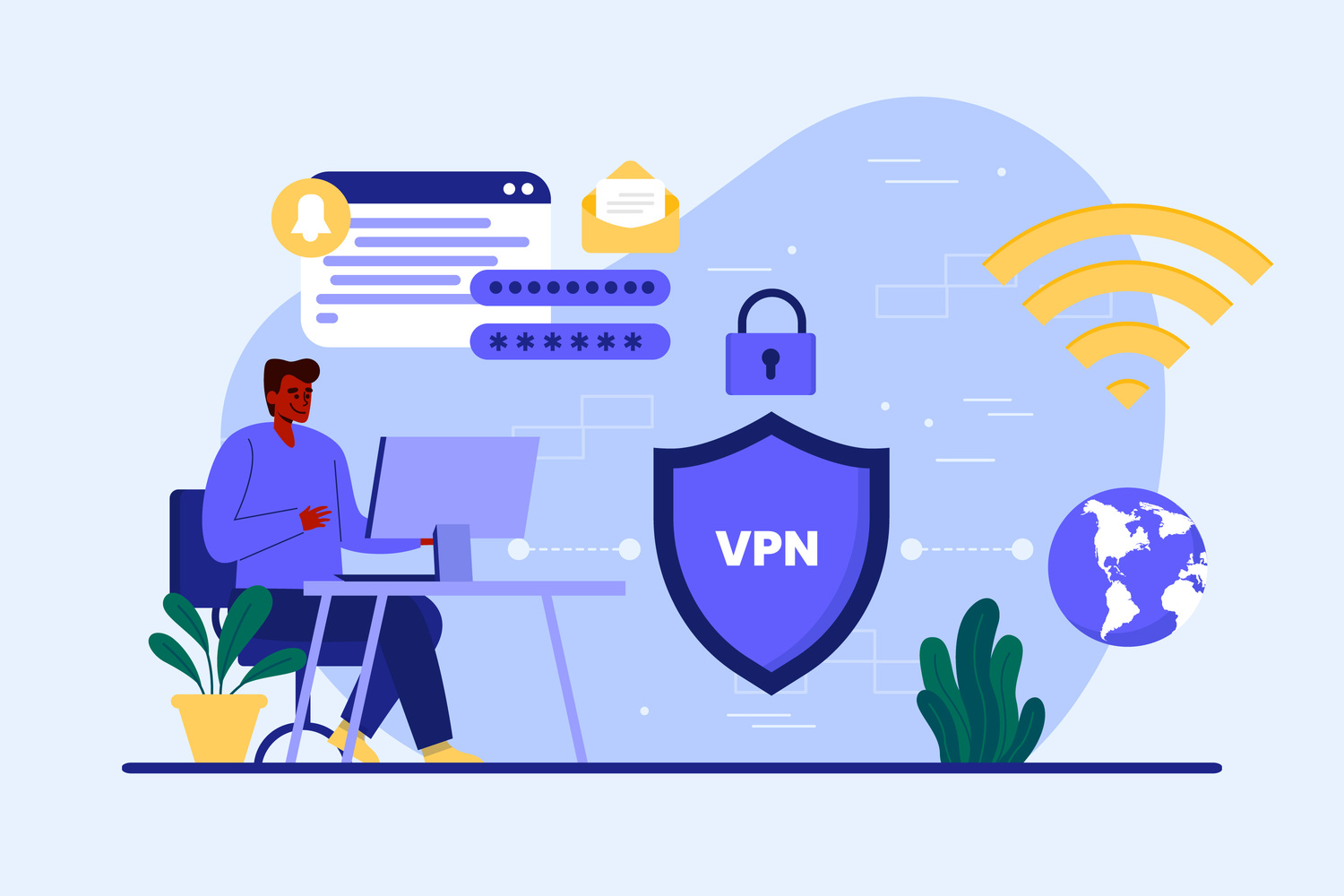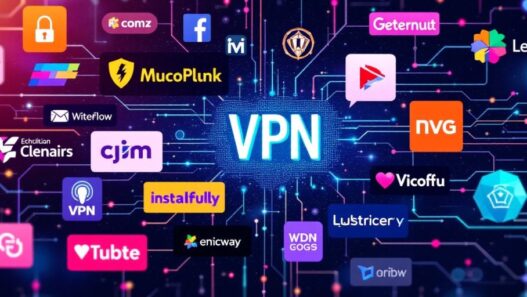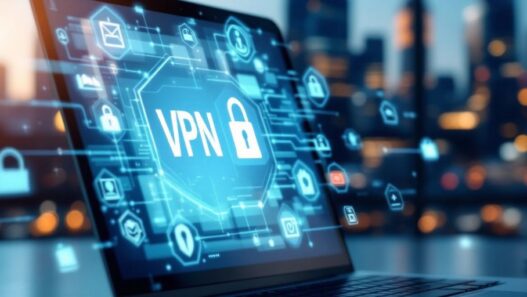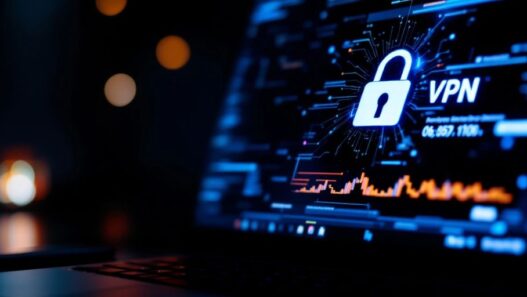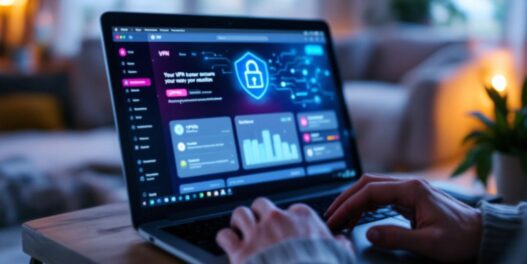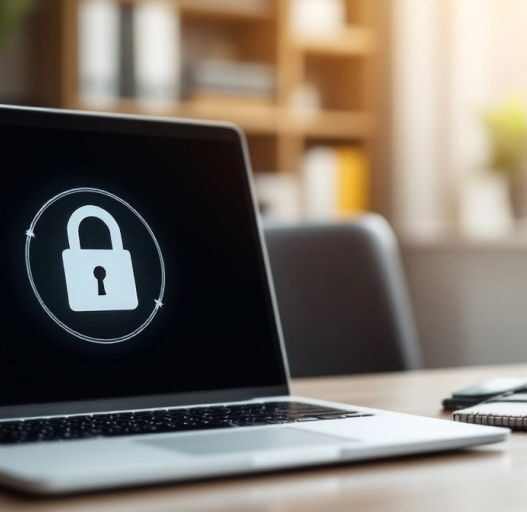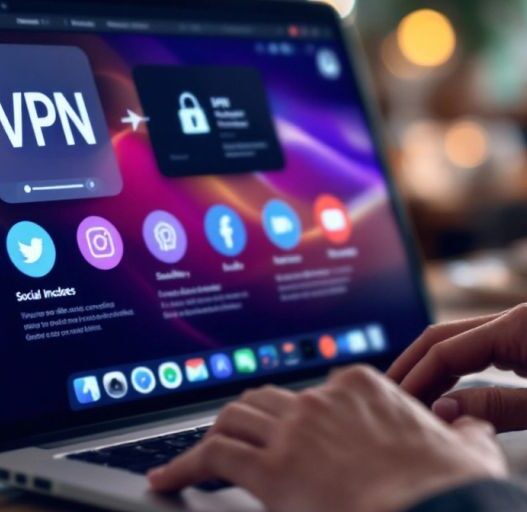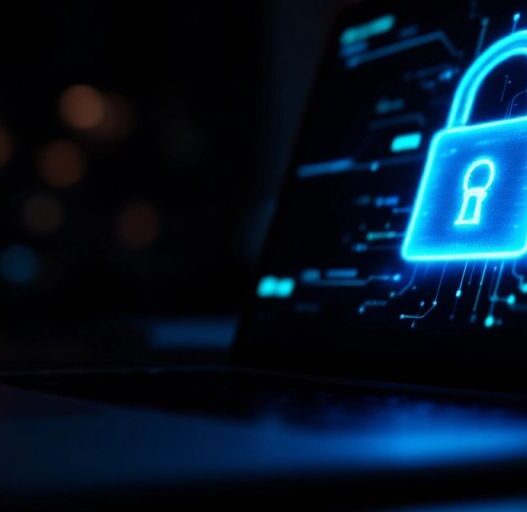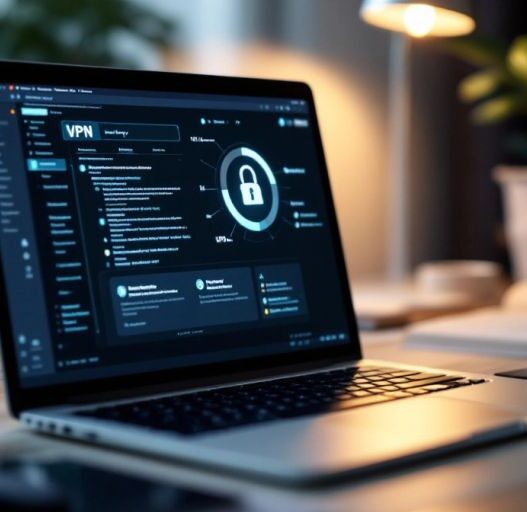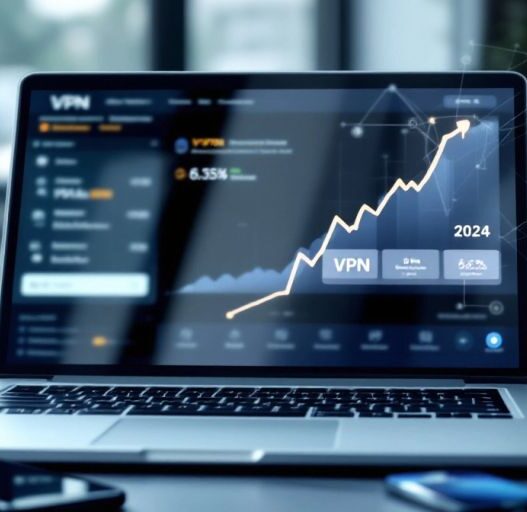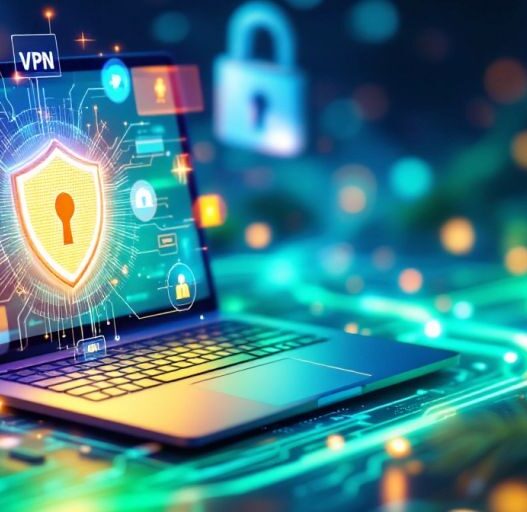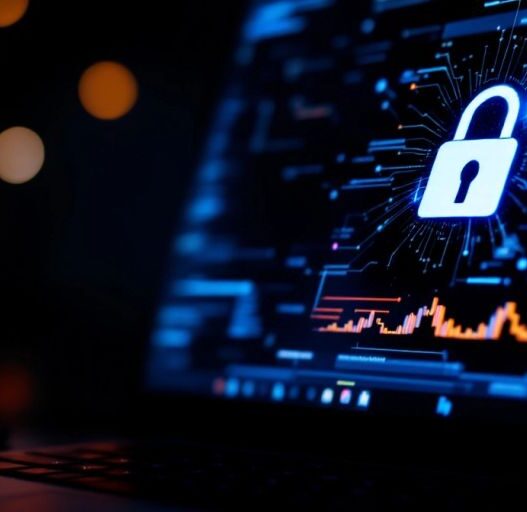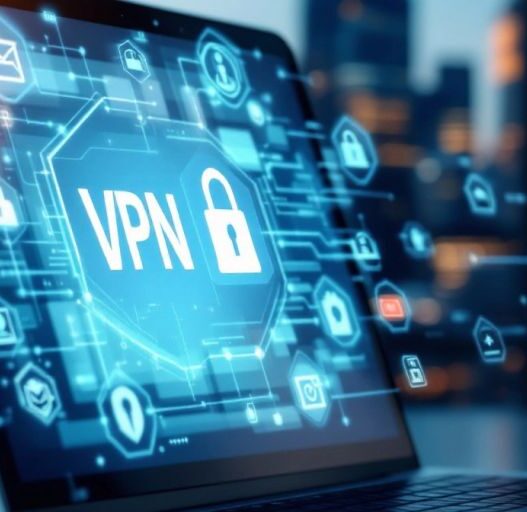Understanding VPNs and Their Role in Cybersecurity
In today’s digital world, VPNs (Virtual Private Networks) are essential tools for enhancing online security and privacy. They create a secure tunnel between your device and the internet, protecting your data from prying eyes. VPNs are particularly important in the context of cybersecurity, as they help shield users from various online threats.
What is a VPN?
A VPN is a service that encrypts your internet connection, making it difficult for anyone to see what you are doing online. It masks your IP address, which helps keep your location private. This is especially useful when using public Wi-Fi networks, where hackers often lurk.
How VPNs Enhance Online Security
VPNs enhance online security in several ways:
- Encryption: They encrypt your data, making it unreadable to anyone who might intercept it.
- IP Masking: By hiding your IP address, VPNs prevent websites and services from tracking your online activities.
- Secure Connections: They provide secure connections, especially when using unsecured networks like public Wi-Fi.
Common Features of VPNs
Most VPNs come with a variety of features that enhance their effectiveness:
- Kill Switch: This feature disconnects your internet if the VPN connection drops, preventing data leaks.
- Multi-Device Support: Many VPNs allow you to connect multiple devices simultaneously.
- No-Log Policy: A good VPN will not keep logs of your online activities, ensuring your privacy.
Limitations of VPNs
While VPNs offer significant benefits, they are not a complete solution for online security:
- Not a Silver Bullet: VPNs do not protect against all cyber threats, such as malware or phishing attacks.
- Speed Reduction: Using a VPN can sometimes slow down your internet connection.
- Trust Issues: Users must choose trustworthy VPN providers, as some may log data or sell user information.
In conclusion, VPNs play a crucial role in VPN and cybersecurity by providing a layer of protection against online threats. For those looking to enhance their online security, it is advisable to consider reputable VPN services. Investing in a trusted VPN can significantly improve your online safety.
Take action now to protect your online presence! Consider exploring top VPN services that offer robust security features and reliable performance.
Choosing the Right VPN for Optimal Cybersecurity

In today’s digital world, using a VPN (Virtual Private Network) is essential for protecting personal information from online threats. A VPN creates a secure connection that keeps your data safe from hackers and other cybercriminals. This section will guide you through the important factors to consider when selecting a VPN for optimal cybersecurity.
Factors to Consider When Selecting a VPN
- Privacy Policies: Look for VPNs that have a strict no-logs policy, meaning they do not track your online activities.
- Encryption Standards: Ensure the VPN uses strong encryption methods, such as AES-256, to protect your data.
- Speed and Performance: Choose a VPN that offers fast connection speeds to ensure smooth browsing and streaming.
The Risks of Free VPNs
While free VPNs may seem appealing, they often come with significant risks:
- Data Selling: Many free VPNs sell user data to third parties.
- Limited Security Features: Free services may lack essential security features, making your data vulnerable.
- Slow Speeds: Free VPNs often have slower speeds due to limited bandwidth.
Trusted VPN Providers
Some of the most reliable VPN providers include:
- NordVPN: Known for its strong security features and user-friendly interface.
- ExpressVPN: Offers high-speed connections and excellent customer support.
- CyberGhost: Provides a wide range of servers and robust privacy policies.
Evaluating VPN Security Features
When assessing a VPN, consider the following security features:
- Kill Switch: This feature disconnects your internet if the VPN connection drops, preventing data leaks.
- Malware Protection: Some VPNs offer built-in malware protection to keep your devices safe.
- Multi-Device Support: Ensure the VPN allows multiple devices to connect simultaneously for added convenience.
Choosing the right VPN is crucial for maintaining your online security. A trustworthy VPN not only protects your data but also enhances your overall internet experience.
In conclusion, selecting the right VPN is a vital step in safeguarding your online presence. By considering the factors mentioned above, you can make an informed decision that best fits your needs. Don’t wait until it’s too late; invest in your online security today!
Practical Applications of VPNs in Everyday Life

In today’s digital world, VPNs (Virtual Private Networks) serve as essential tools for enhancing online security and privacy. They create a secure tunnel for your internet connection, making it harder for hackers to access your data. Using a VPN can significantly reduce the risk of data theft, especially on public Wi-Fi networks.
Using VPNs for Secure Remote Work
- VPNs allow employees to connect to their company’s network securely.
- They encrypt sensitive data, protecting it from cyber threats.
- Remote workers can access files and applications as if they were in the office.
Accessing Geo-Restricted Content Safely
- VPNs enable users to bypass geographical restrictions on websites and streaming services.
- They allow access to content that may be blocked in certain regions.
- Users can enjoy a wider range of entertainment options without compromising security.
Protecting Personal Information on Public Wi-Fi
- Public Wi-Fi networks are often insecure and can be targeted by hackers.
- VPNs encrypt your internet traffic, making it difficult for cybercriminals to intercept your data.
- Users can browse the internet safely, even in crowded places like coffee shops or airports.
VPNs for Activists and Journalists
- VPNs provide a layer of security for activists and journalists working in oppressive regimes.
- They help protect sensitive information and maintain anonymity online.
- Using a VPN can prevent government surveillance and censorship.
In a world where online threats are ever-present, using a VPN is a proactive step towards safeguarding your digital life.
When choosing a VPN, consider trusted providers like NordVPN or ExpressVPN, which offer robust security features and user-friendly interfaces. Investing in a reliable VPN can provide peace of mind while navigating the internet. Don’t wait until it’s too late; take action now to protect your online presence.
Advanced VPN Features for Enhanced Cybersecurity
In today’s digital world, VPNs play a crucial role in protecting users from online threats. They not only hide your IP address but also encrypt your data, making it harder for cybercriminals to access your information. Here are some advanced features that enhance cybersecurity with VPNs:
Malware Protection and VPNs
- Malware Blocking: Many VPNs come with built-in malware protection that blocks harmful websites before you even visit them.
- Real-Time Scanning: Some services offer real-time scanning of downloads to ensure that no malicious software sneaks onto your device.
- Safe Browsing: This feature helps you avoid phishing sites and other online scams, keeping your personal information safe.
Kill Switch and Its Importance
- Automatic Disconnection: A kill switch cuts off your internet connection if the VPN fails, preventing your data from being exposed.
- User Control: Users can customize settings to ensure that sensitive activities are always protected.
- Peace of Mind: Knowing that your connection will be secured at all times helps in cyberattack prevention.
Multi-Device Support
- Simultaneous Connections: Many VPNs allow you to connect multiple devices at once, ensuring that all your gadgets are protected.
- Cross-Platform Compatibility: Whether you use Windows, macOS, or mobile devices, a good VPN will work seamlessly across all platforms.
- Family Protection: With multi-device support, families can secure all their devices under one account.
Dark Web Monitoring
Dark web monitoring is essential for staying one step ahead of potential threats. It alerts you if your personal information appears on the dark web, allowing you to take action before it’s too late.
- Proactive Alerts: Users receive notifications if their email or personal data is found on the dark web.
- Data Security: This feature helps in protecting personal information and enhances overall online threats protection.
- Timely Response: Quick alerts empower users to act fast, reducing the risk of identity theft.
In conclusion, choosing a VPN with these advanced features can significantly enhance your cybersecurity. Services like NordVPN and ExpressVPN offer robust protection and are highly recommended for anyone serious about their online safety. Take action now to secure your digital life and protect yourself from online threats!
Conclusion
In conclusion, using a VPN is a smart way to protect yourself online. It helps keep your personal information safe from hackers and other threats. While VPNs are not perfect, they add an important layer of security to your internet use. Choosing a reliable VPN can help you stay private and secure while browsing the web. Remember, it’s essential to do your research and pick a trustworthy service. By taking these steps, you can enjoy a safer online experience and reduce the risks of cyber threats.
Frequently Asked Questions
What is the main purpose of a VPN?
A VPN, or Virtual Private Network, creates a safe connection over the internet. It hides your online activity and protects your personal information from hackers.
Are free VPNs safe to use?
Free VPNs can be risky. They might not protect your information well and could even sell your data to others. It’s usually better to choose a paid VPN for better security.
How can a VPN help when using public Wi-Fi?
Using a VPN on public Wi-Fi is important because it encrypts your data. This means that even if someone tries to snoop on your connection, they won’t be able to see your information.
